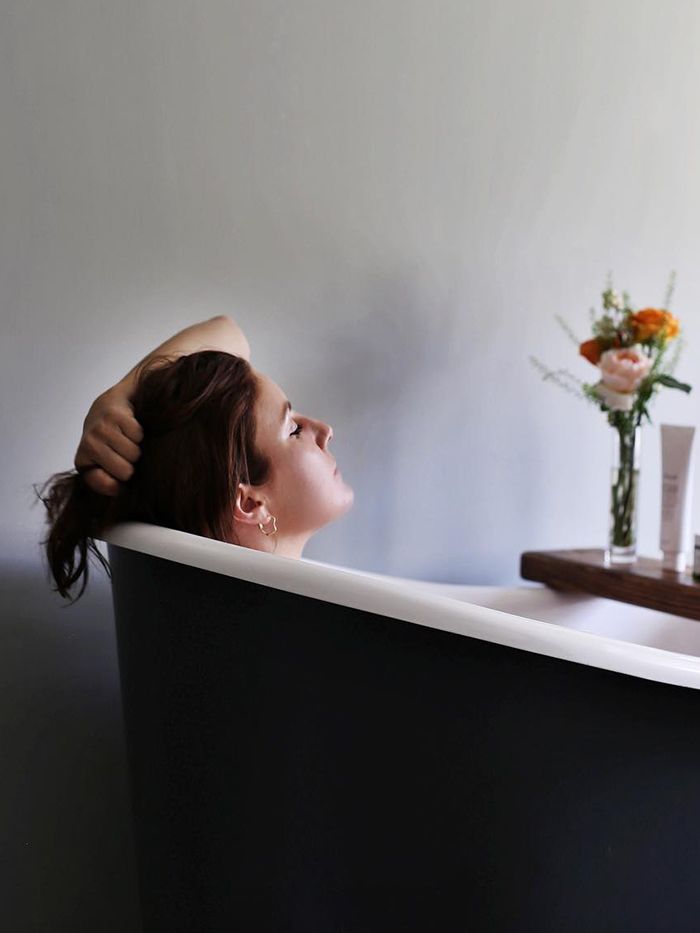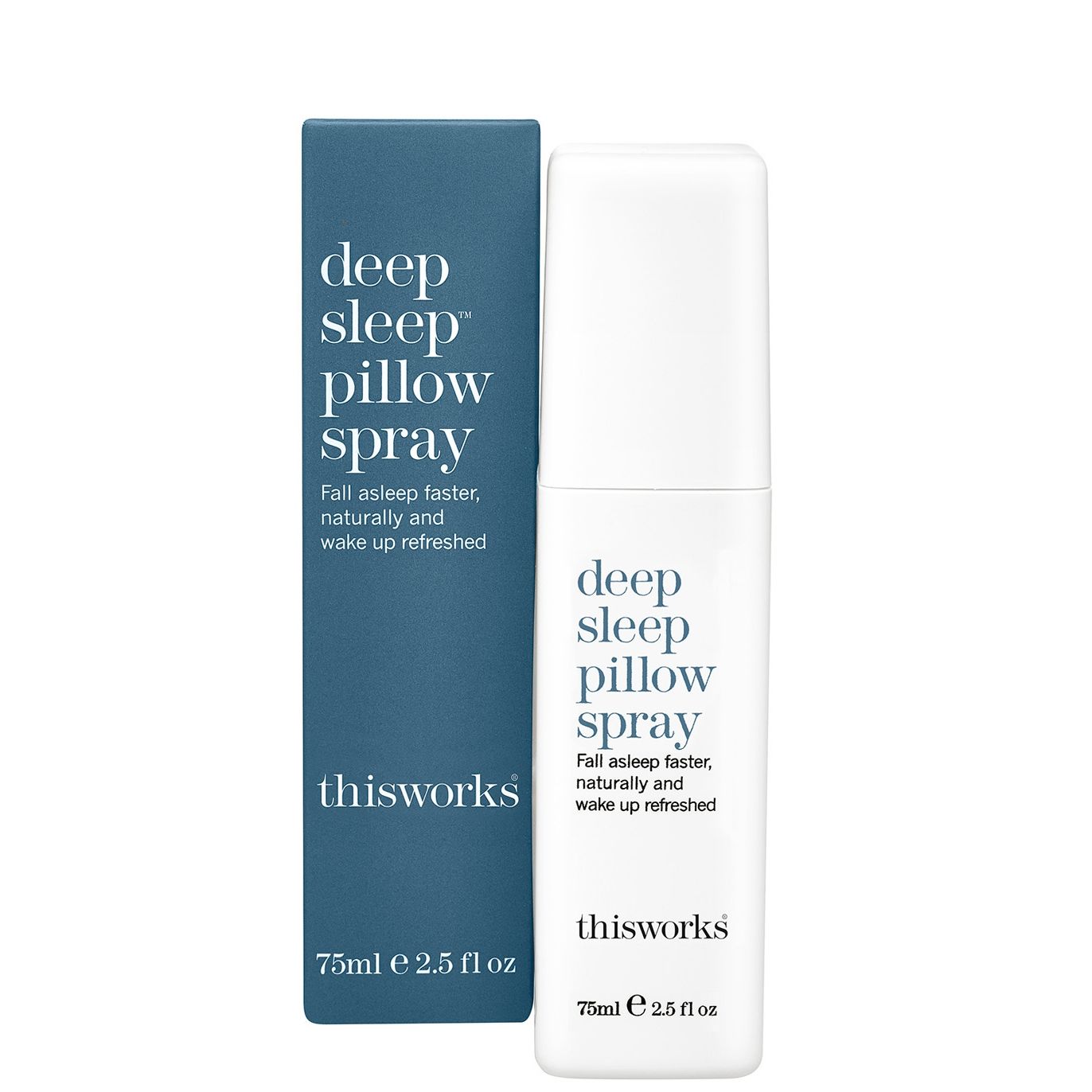
Since my school years, I’ve been terrified of public speaking. As a child, I would dread being picked to read aloud in lessons, or to stand up in front of my classmates for a presentation. My heart would relentlessly thump in my chest, my breathing would become erratic, and my throat would feel like it was closing in. I felt totally out of control. And that was all before I had even opened my mouth or stood up at the front of the room.
The anticipation alone was enough to set me off—so I’d ultimately suffer twice. During any public speaking situation, my voice would shake so much that sometimes it felt almost impossible to get the words out. As a result, I was so aware of how nervous I was—and that others could tell, which ultimately made me even more nervous—that I’d go out of my way to avoid any form of public speaking I could.

However, as an adult, it has become increasingly difficult to avoid these situations. But, I had also reached the point where I was frustrated. I wanted to overcome this fear and it was something I was driven to conquer. Sure, I’m probably never going to give impactful speeches on a Barack Obama level, but I want to comfortably deliver when the public speaking opportunities do arise. Whether it’s important work meetings, speaking on panels or hosting IG-Live sessions, I was still feeling anxious. I couldn’t avoid these any longer and I didn’t want to continue feeling petrified anytime I knew I would be speaking publicly. And no, imagining everyone naked or reframing my nerves as “excitement” did not help.
I had an upcoming public speaking event planned, and I really wanted to treat the root cause of my public speaking anxiety for it, once and for all. So, I turned to hypnotherapy. I was lucky enough to visit Lydia Johnson, hypnotherapist and expert, and founder of the London Clinic of Hypnotherapy, who I hoped would help me overcome my fear of public speaking. I’ve detailed my experience below, but first, let’s debunk some myths; what exactly is hypnotherapy, and how does it work?

“Hypnotherapy taps into the subconscious mind, often to bring out deep-ridden traumas from childhood or past events that have left feelings of negativity,” explains Johnson. To do this, hypnotherapy involves talking with your hypnotherapist, who will tailor audio that you can listen to to rewire your subconscious.
“The subconscious is thought of as a biological hard drive, or like a recorded database for all things about you,” Johnson says. “Your conscious mind may know that you should quit that unhealthy habit, or exercise more often. But, this conscious willpower can only guide you so far. It’s the subconscious that needs rewiring in order to achieve your goals.” Why? “Because your subconscious beliefs can sabotage your conscious efforts,” she says. “The more aware you are of your subconscious beliefs, the better you will become at accessing them. You can often tap into the subconscious mind in instances where you feel a ‘gut instinct’ or intuition. The more you pay attention to this, the better you will be at training your subconscious.”
You might have heard that hypnotherapy can help with making diet changes or to help quit smoking or alcohol, but there are also other areas hypnotherapy can treat. Johnson notes imposter syndrome, self-sabotage, fear of failure, toxic emotions, and hidden rage to be concerns that can be addressed, as well as procrastination, perfectionism, “comparisonitus”, negative self-talk, and general habits you want to change.

“Anyone can be hypnotised, and some are more receptive than others for sure—an open mind helps,” says Johnson. “In my sessions we learn intricately about neuroscience and the deep understanding of the mind and body connection. Every thought we have is crucial, each has an effect on our nervous system—fascinating and informative and useful information in order to change our thoughts —this is called neuroplasticity.”
“Make sure [your hypnotherapist] is fully qualified with supportive reviews, and that you have a conversation before the session to make sure you are in sync with each other and all that hypnotherapy has to offer,” says Johnson.
I’ve always considered hypnotherapy as something you might see as part of a stage act (or swinging a watch in front of someone to make them walk like a chicken). But, after having my initial consultation call with Johnson, I knew I was in very good hands and I was excited to attend her clinic, tucked away in the heart of Soho. On the call, Johnson listened to my feelings with and concerns around public speaking and explained how she could help. She recommended her breakthrough session, a one-off appointment, three hours in total, where we’d do a deep dive into my subconscious. I’ve always pictured hypnotherapy clinics to be, well, clinical and stark, but not Johnson’s. Her clinic is homely and very stylishly designed. As a Diptyque candle burned on the table and her dog snoozed in his bed next to us, she poured me a cup of peppermint tea, I sat down on the sofa, and when we began our session.

I was surprised to learn just how much of the appointment time would be talking—around two hours, with approximately 30 minutes of listening to the hypnotherapy audio which Johnson recorded live in the clinic. In order to get to the root cause of my public-speaking fear, we delved into my present, as well as my childhood. No stone was left unturned. We spoke about all areas of my life, from family to work and my sense of self to relationships. You do feel vulnerable opening up, however, Johnson listens with great empathy. I’d liken the hypnotherapy appointment to a therapy session, but it feels more investigative (in fact, hypnotherapy has a higher success rate than cognitive behavioural therapy). Talking through these key life pillars, as Johnson calls them, allows her to give a tailored approach to the hypnotherapy audio, which she would record at the end of my appointment.
As we spoke about my goals and how I want to feel after the hypnotherapy, and in preparation for my public speaking event for work, Johnson told me how we can be prone to playing “boxsets” of certain situations, whether it be a memory of the past or pre-empting the future. I realised that I was hitting repeat of certain memories in my mind, or worrying about the future—I was never really fully present, which was exhausting! Part of treating my subconscious was to acknowledge when these thoughts arose, nip them in the bud and change tact on the negativity. In other words, you can choose if you want to replay that memory boxset, or you can choose not to. Our thoughts are just that—thoughts—but quite often we can associate our thoughts as our sense of self or personality, which isn’t the case.

As such, Johnson explained how our thoughts are the starting points that shape our behaviours and deeper internal belief systems. Our thoughts, eg. “I already know I’m going to be so nervous during this presentation,” influence our feelings (cue nervousness and hopelessness), which then affect our emotions—hey, anxiety—which in turn releases a “cortisol cocktail” in our body. That’s the “fight or flight” hormone that would be really helpful if you were running from a lion, but in modern-day scenarios like delivering a daunting presentation, leaves you feeling anxious and nervous, and in my case, my voice shaking, heart racing and my throat feeling like it was closing in on itself. This then leads into deep emotion, the deeper-rooted part of our subconscious, where we develop internal belief systems (“I’ll never be good at public speaking”). See how quickly our thoughts can snowball? As Johnson eloquently puts it: “Quality of mind is quality of our life.”
When it came the hypnotherapy recording, I laid down on the sofa while wearing headphones and closed my eyes as Johnson began the recording, which I listened to live and would continue to listen for the next three weeks. In the audio, her voice helps you to visualise yourself physically walking in to your subconscious (in my case, I was walking into a beautiful forest) and rewiring those deep-seated internal belief systems that we often pick up in childhood. At first, it was hard to switch off (I’d worry, is this really working?) but after a few moments, I could easily focus, and it was very relaxing to listen to. Johnson also assures that even if you think nothing is happening, the audio is working to re-wire your subconscious by creating new neutral pathways in your brain. After our session, I treated it as a daily pilates workout for my subconscious in the lead up to my presentation, listening to it each evening to help to build stronger mental muscles and rewrite outdated belief systems I was holding on to. Because Johnson really tailors the audio to you, all the hard work is done for you. All you have to do is listen.
When my work presentation finally came around, I have to admit, I was really nervous. As I was about to present, my heart thumped in my chest, but, from listening to the recording, I had noticed a mindset shift and I was able to relax my thoughts and, therefore, my body, so I didn’t experience any severe voice shaking, or feeling my throat close in. I felt a huge wave of relief afterwards that I’d done it without any problems and now, I feel confident I could do it again in the future.
Having a better understanding of how our daily thoughts, no matter how big or small, shape how we view ourselves alone was enough for me to spot negative thoughts before they spiralled, and made me realise just how much these thoughts had been running riot in my mind before my hypnotherapy session. But listening to the audio each day has gratefully improved how I feel day to day, and has had a ripple effect in other areas of my life too. Sure, it might not work for everyone, but if you’re looking to resolve a problem and have exhausted a lot of options, from my experience I’d say it’s absolutely worth considering. What I loved about Johnson’s treatment was that she also shared wellness resources, books and breathing techniques that would also serve me, so I really felt like she had treated my fear of public speaking in a 360-approach alongside the hypnosis, too. I know it sounds hyperbolic to describe something as life-changing, but I would liken hypnotherapy to it. So, if you’re thinking of trying hypnotherapy, I’d say go for it, and I couldn’t recommend a session with Johnson enough.





Up Next, Trust Us—These 7 Well-Being Tips Are Guaranteed Mood Boosters




